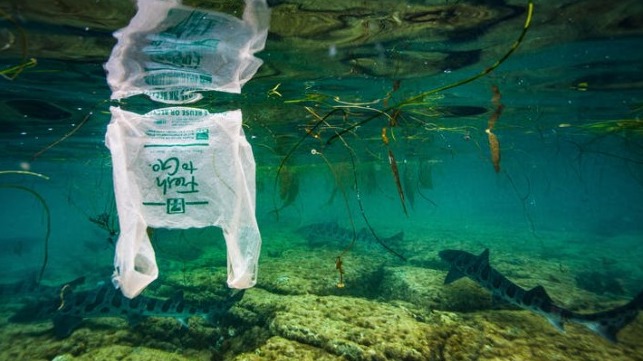NGOs and Governments Push for World Treaty on Plastic Waste

The push for a global coherent strategy to tackle ocean plastic pollution is gaining momentum amidst failure by some of the world’s biggest polluters to endorse a United Nations-led process to enact a treaty.
Following shortly after World Ocean Day, environmentalists, conservationists and some countries have renewed calls for a global treaty on plastic pollution. Their hope is that a treaty could help contain the growing menace of plastic waste, which is clogging oceans and having adverse impacts on the environment, marine life, human health and economic activity.
“We recognize the urgent need for collective global action to halt and reverse the rapid increase in plastic pollution and create a circular economy for plastics,” said a group of 16 leading organizations representing businesses, NGOs and civil society.
Nestlé and Unilever are among the biggest generators of plastic waste that signed the statement.
The push for a landmark global agreement is however facing obstacles, owing to failure by some countries - like China, the United States, Canada and South Africa, among others - to endorse the treaty.
The United Kingdom, which was among countries opposed to a global agreement, has since changed its position and agreed to support a new legally binding global agreement to address plastic pollution. Despite putting environmental protection among the top priorities, the Biden administration has opted for silence owing to the fact that top U.S. conglomerates are among the leading generators of plastic wastes.
Proponents of the agreement believe that a UN treaty on plastic pollution can create the enabling conditions to eliminate plastic leakage into the ocean. At least 100 nations have expressed support for the plastic treaty, which if enacted would be a significant addition to the Paris Agreement and the 1987 landmark Montreal Protocol, which prevents the depletion of the stratospheric ozone layer. The treaty would also build on the Basel Convention, which addresses transboundary movement of plastic waste but has no jurisdiction over what countries decide to do within their own boundaries.
The United Nations Environment Assembly, which is leading efforts towards a global pact, has warned that the rapidly increasing levels of plastic pollution represent a serious global environmental problem that adversely affects marine biodiversity, ecosystems, livelihoods, fisheries, maritime transport, recreation and tourism and local societies.
The plastic pollution of oceans also costs the global economy billions of dollars annually and pose health risks to millions of people.
Studies show that while China is the world’s largest manufacturer of plastic, the U.S. is the world’s largest generator of plastic waste, producing about 42 million tonnes. Other top plastic generators are India, China, Brazil, Indonesia and Russia, among others.
In terms of companies, a Break Free From Plastic brand audit shows Coca-Cola, PepsiCo, Nestlé, Unilever, Mondelez International, Mars, Inc., Procter & Gamble, Philip Morris International, Colgate-Palmolive and Perfetti Van Melle as the biggest generators of plastic waste.
A 2020 report by The Pew Charitable Trusts and SYSTEMIQ estimates that 11 million tonnes of plastic waste enter the ocean every year. Without immediate and sustained action, that amount will nearly triple by 2040 to 29 million metric tons per year.

that matters most
Get the latest maritime news delivered to your inbox daily.
The report reckons that although progress has been made in addressing the global plastic challenge, current commitments by governments and industry will reduce the annual volume of plastic flowing into the ocean by only about seven percent by 2040.
Top image: Ralph Pace / CC BY ND
